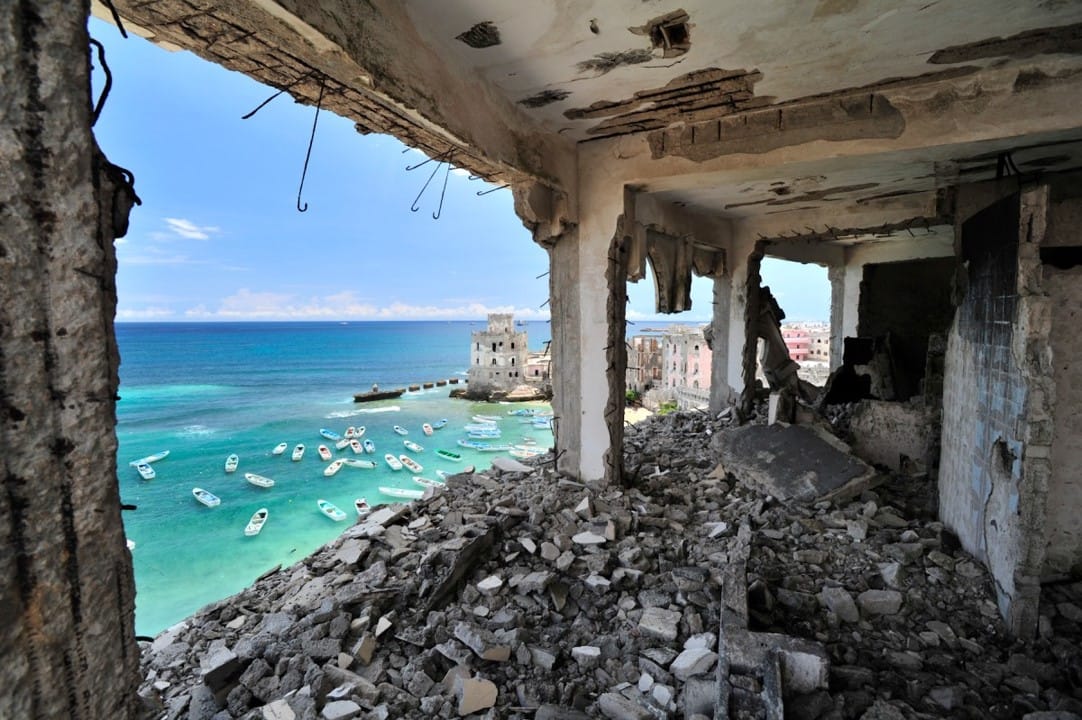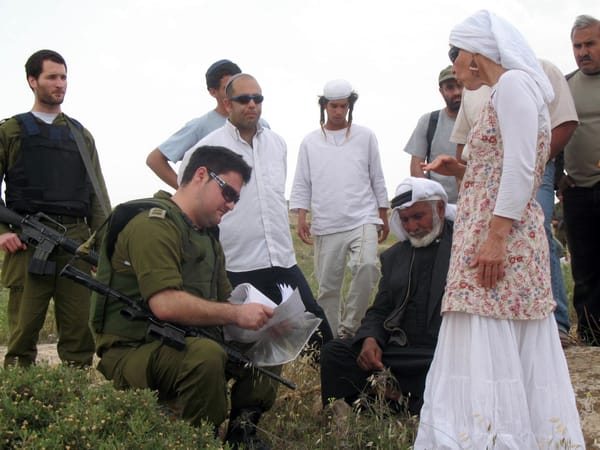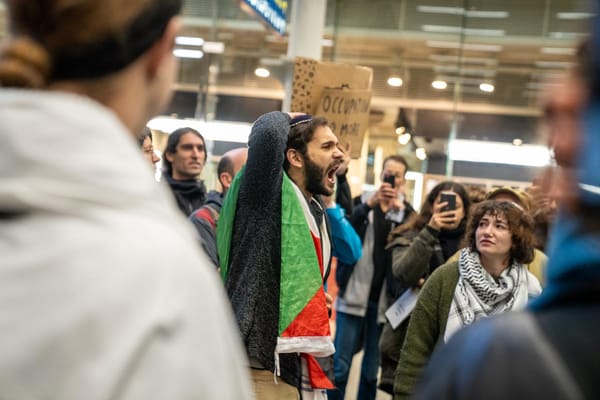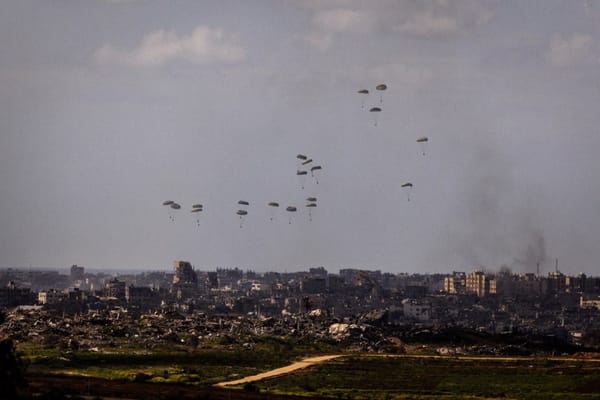Israel’s Mogadishu-fication of Gaza
What a reductive analogy can tell us about the unfolding catastrophe.

You know a geopolitical situation has gotten really out of hand when people start invoking Somalia.
Indeed, after six months of unprecedented bombardment at the hands – and AI machines – of the Israeli military, Gaza, where “civil order” has “eroded” and predatory power-brokers have emerged to fill the “vacuum”, is the latest theatre of battle that seasoned humanitarians have begun comparing to Mogadishu, Somalia’s war-torn capital, according to an article published in The Guardian on Monday. In warning of the Gaza Strip’s impending descent into a situation akin to a “Mogadishu on the Mediterranean”, observers are sounding a powerful alarm regarding the level of humanitarian breakdown faced by ordinary Palestinians, building on well-worn depictions of Somalia as a permanently “failed state”.
As an academic and practitioner who has spent over a decade exploring the diverse and often innovative ways that Somalis have responded to “statelessness”, it behooves me to begin by pointing out that such comparisons, while evocative and potentially useful in galvanising a political response, perpetuate unhelpful and even Orientalist tropes that present certain peoples and countries as inherent “basket cases”. Moreover, like all meme-ified forms of political narrative, such reductive analogies fail to do justice to either the archetype (in this case Mogadishu) or the object being illuminated (Gaza’s unfolding catastrophe), often glossing over important political differences necessary for understanding divergent contexts.
However, the point I seek to make here goes beyond a pedantic call for academic thoroughness or moralistic appeal to respect the dignity of all peoples, both worthy causes though they are. Instead, I see a particularly salient intellectual danger in conflating the two cases. Not because such depictions overstate the severity of the two cases – Mogadishu is indeed a dangerous and difficult place to live, and Gaza’s fragmentation into zones of extortion patrolled by armed militias is certainly reminiscent of Somalia’s capital at its worst – but because they obscure the very different political causes behind these somewhat similar political outcomes. To make this case, we must take a short detour through Somali history.
As the 1980s saw the Cold War draw to a close, Somalia, one of Africa’s most formidable postcolonial nations, started to come apart at the seams. A failed experiment with “scientific socialism” (a crude, centralised command economy), combined with a costly war with neighbouring Ethiopia, had left the country economically and politically stagnant. Somalia’s reliance on great power patronage was dwindling as both America and the USSR lost interest, leaving Somalia’s military dictatorship to resort increasingly to clientelism and political suppression to buy-off loyal clans and punish those who resisted.
Such divide-and-rule tactics proved short-sighted, leading to widespread armed rebellion that ultimately engulfed the country. By 1991, the leadership was deposed, with Mogadishu becoming a battleground where rival militias competed unsuccessfully over the seat of national power. Humanitarian intervention by the US and a UN-authorised coalition only exacerbated the turmoil, with various “warlords” exploiting the fighting and influx of aid to embed themselves as key power-brokers and political intermediaries.
To this day, the area’s political economy remains predominantly organised around plunder and exploitation fostered by violence, albeit to a degree far less severe than that gruesome, chaotic early period. Such conditions persist to produce recurrent humanitarian emergencies, acute food insecurity and militant extremism, even as other Somali regions further from Mogadishu – such as Somaliland and Puntland – have stabilised dramatically.
Turning to Gaza, it is first worth noting that, however grim the above tale is, in certain respects the horror that the Palestinians are currently facing is even worse. In fact, as expert on humanitarianism, conflict and peace Alex de Waal has explained, “Gaza is already the most intense starvation catastrophe of recent decades,” and, failing drastic changes in the way Israel is governing the territory, will cause famine-related deaths and afflictions that dwarf even the catastrophic events of 2011 in Somalia, “the worst famine on the [Famine Review Committee’s] record books”. And while intermittent episodes of intense conflict have seen Mogadishu’s once iconic urban landscape suffer severe ruination over the decades, Gaza has seen 63% of homes and 84% of health facilities across its much larger territory damaged or destroyed in a mere matter of months. The speed and intensity of such deprivation and annihilation is why de Waal classifies Israel’s actions as a “campaign of destroying everything necessary to sustain life”.
Seen in this light, grotesque efforts by certain “clear-eyed”, “‘realist” defenders of Israel to downplay its killing and starving of civilians through lamentations that “war is hell” and that the civilian death toll is “unavoidable” are especially disingenuous and insidious: what we are witnessing far exceeds matters of war strategy, economic opportunism and power politics – we have entered the realm of revolutionary messianism, nihilistic cruelty and genocide.
This is where the Mogadishu analogy falls flat. In that case, the full-scale breakdown of the existing social order, while not inevitable, came about as the culmination of a coalescing storm of political developments. There, political demands for change became too much for the sclerotic and indifferent regime to handle, leading it to collapse under the weight of its own governance failures, unleashing reckless political energies hitherto suppressed. What we see happening now in Gaza, on the other hand, while similarly borne of unresolved political maladies, is not self-engendered implosion from internal contradictions, but a destructive energy forced upon it from outside, by design.
Taking this argument further, it can be said that, while Somalia’s civil war came about when political struggle was unexpectedly usurped by cynical, self-interested actors (warlords and clan militias), what Israel is inflicting upon Gaza is a deliberate attempt to eliminate “the political” altogether. This marks an evolution in Israel’s strategy for sabotaging the Palestinian liberation movement, which had previously involved dividing the population among multiple, competing political organisations in Gaza and the West Bank (to the point of actively supporting Hamas), to now, in this current phase, actively creating an unruly, survivalist, depoliticised state of affairs, where, similar to Mogadishu, a patchwork of armed actors exploit the chaos rather than seek collective political transformation. Hence the Netanyahu administration’s stated ambition of replacing a defeated Hamas with a handpicked selection of “non-political,” “influential family clans”, a strategy redolent of the indirect rule of the colonial era (including British-administered Somaliland).
Whereas actual Mogadishu was an accident of history, Gaza, as Mogadishu redux, treats the original as a blueprint.
With all this in mind, what can Somalia’s post-collapse trajectory teach us about the future of Gaza? For me, the main takeaway is that, if Israel indeed gets its way and can splinter the Gazan population into zones of ungovernability (whether inside or outside Palestine), the world will be worse off for it. This is not simply for the toll it will take on Palestinians – which is reason enough to do all we can to resist Israel’s military campaign and push for a ceasefire – but equally for the future of global peace and security. For, whereas politics, while open to corruption and degeneration, at least offers the possibility of hope in a better future, nihilism, as a value-destroying, dehumanising anti-politics, only breeds terror and depravity.
Indeed, just as various international humanitarian and state-building interventions into Mogadishu have stifled true political alternatives, thus leaving extremist groups such as al-Shabaab and the Islamic State to fill the void with their own nihilistic projects, so too may we come to find that whatever emerges from the ruins of Gaza will be equally as monstrous, if not more so. ▼
Dr Matthew Gordon is an academic and international development practitioner with over a decade of experience working in the Horn of Africa, and an editor at Vashti.




